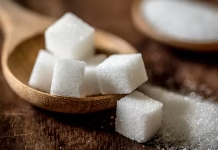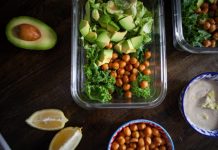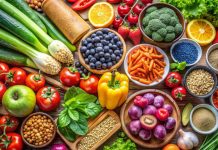Embarking on a fitness training journey requires more than just a well-structured exercise regimen; it demands a complementary diet that fuels your body, aids recovery, and enhances performance. Whether you’re a seasoned athlete or a fitness enthusiast, understanding the best dietary practices can make a significant difference in your training outcomes. This article explores the essential components of an optimal diet for fitness training, guiding you through the key elements that will help you achieve your fitness goals.
Balanced Macronutrients: The Foundation
Macronutrients—carbohydrates, proteins, and fats—are the cornerstone of any effective diet for fitness training. Each plays a unique role in supporting your body’s needs during exercise and recovery.
Carbohydrates are the primary energy source for high-intensity workouts. They fuel your muscles and brain, providing the stamina needed for prolonged physical activity. Complex carbs, such as whole grains, fruits, and vegetables, are particularly beneficial as they release energy slowly, sustaining you throughout your workout.
Proteins are crucial for muscle repair and growth. Consuming adequate protein ensures that your muscles recover effectively after training and grow stronger over time. Lean meats, fish, eggs, dairy, legumes, and plant-based proteins like tofu and tempeh are excellent sources.
Fats should not be neglected, as they are vital for hormone production and overall health. Healthy fats, such as those found in avocados, nuts, seeds, and olive oil, provide long-lasting energy and support cellular functions.
Hydration: The Unsung Hero
Staying hydrated is often underestimated but is essential for optimal performance and recovery. Water is involved in nearly every physiological process in the body, including temperature regulation, joint lubrication, and nutrient transport.
During intense exercise, you lose water through sweat, and failing to replace it can lead to dehydration, which negatively impacts performance and recovery. Aim to drink water regularly throughout the day, not just during your workout. For prolonged or high-intensity sessions, consider beverages that replenish electrolytes, such as sports drinks or coconut water.

Timing and Frequency of Meals
When you eat can be just as important as what you eat. Proper meal timing helps to maximize energy levels and enhance recovery.
Pre-Workout Nutrition: Eating a balanced meal 2-3 hours before exercise ensures you have enough energy for your workout. This meal should include a mix of carbohydrates, protein, and a small amount of fat. For a quick energy boost closer to your workout, opt for a small snack like a banana or a piece of toast with peanut butter 30-60 minutes beforehand.
Post-Workout Nutrition: After exercising, your body needs nutrients to repair and rebuild muscle tissue. Consuming a meal or snack with both protein and carbohydrates within 30-60 minutes post-workout can significantly enhance recovery. Examples include a protein shake with fruit, a turkey sandwich, or Greek yogurt with berries.
Meal Frequency: Eating smaller, balanced meals every 3-4 hours can help maintain energy levels and prevent overeating. This approach ensures a steady supply of nutrients to fuel your training and recovery processes.
Micronutrients: The Small but Mighty Nutrients
While macronutrients take center stage, micronutrients—vitamins and minerals—are equally important for overall health and fitness. These nutrients support various bodily functions, including energy production, immune function, and muscle contraction.
Key Micronutrients for Fitness:
- Iron: Essential for oxygen transport in the blood. Found in red meat, beans, lentils, and spinach.
- Calcium: Important for bone health and muscle function. Found in dairy products, leafy greens, and fortified plant milks.
- Vitamin D: Supports bone health and immune function. Sourced from sunlight exposure, fatty fish, and fortified foods.
- Magnesium: Involved in muscle relaxation and energy production. Found in nuts, seeds, whole grains, and green leafy vegetables.
To ensure you’re getting a wide range of micronutrients, eat a variety of colorful fruits and vegetables, whole grains, lean proteins, and healthy fats.
Conclusion
The best diet for fitness training is one that balances macronutrients, prioritizes hydration, considers meal timing, and includes a variety of micronutrients. By fueling your body with the right foods at the right times, you can enhance your performance, speed up recovery, and achieve your fitness goals more effectively. Remember, consistency is key. Making gradual, sustainable changes to your diet will lead to long-term success and a healthier, more vibrant you. So, whether you’re lifting weights, running marathons, or just starting your fitness journey, let your diet be the foundation that supports and propels you towards your goals.




